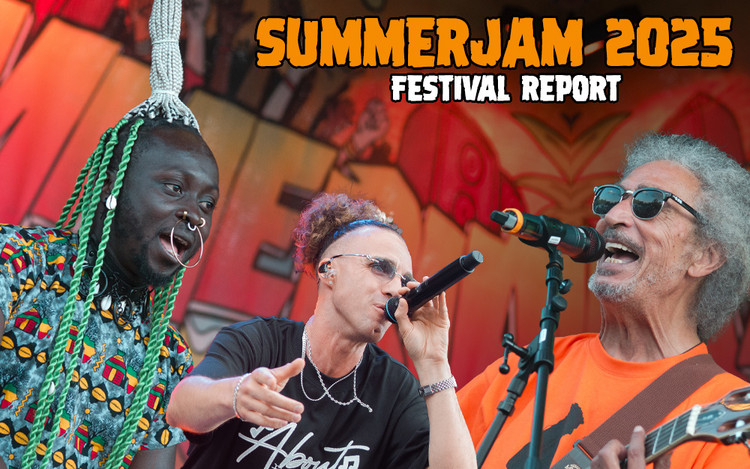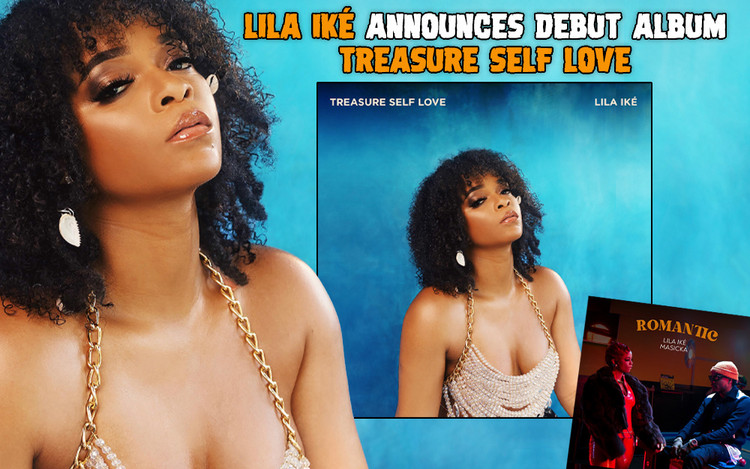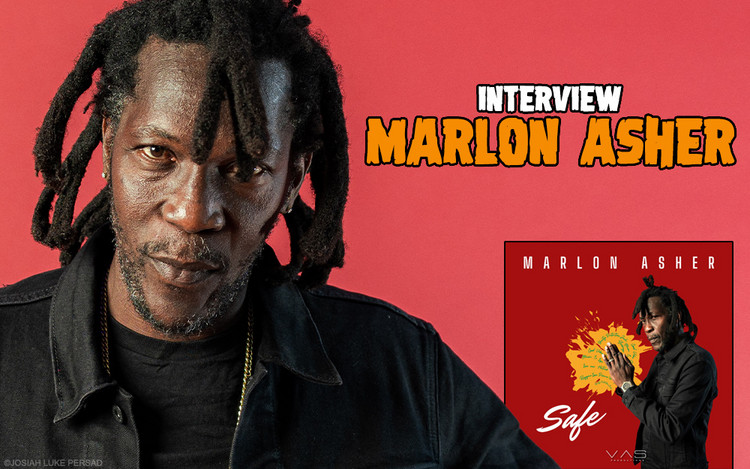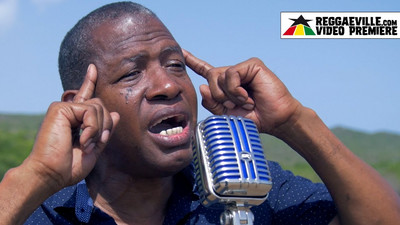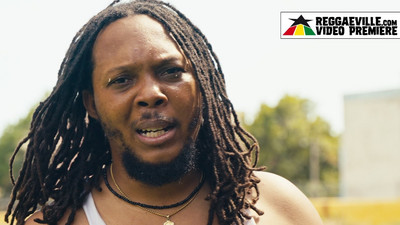Delroy Washington ADD
Delroy Washington Interview (2012) Part II - Bob Marley, Aswad & Dennis Brown
05/09/2020 by Angus Taylor
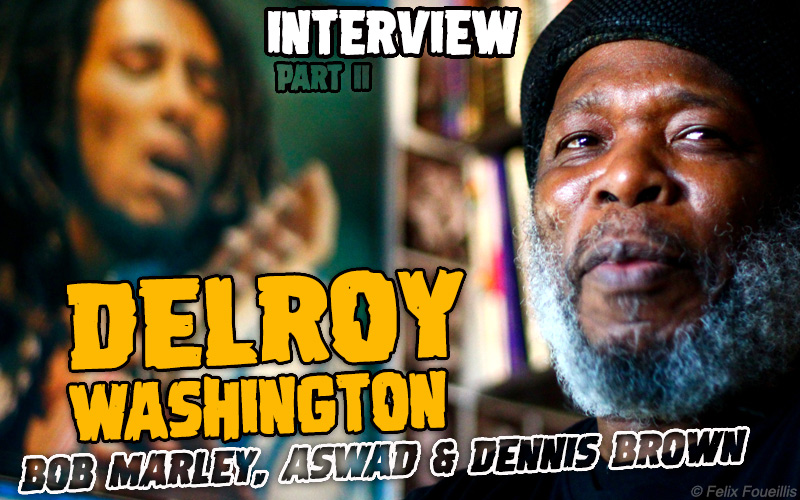
In the second chapter of our 4 part interview with Delroy Washington [read PART I here], he explains how he met Bob Marley, was a formative force for the group Aswad, and spent time with Dennis Brown. A segment describing the Bob Marley encounter was previously published on United Reggae.
How did you meet Bob Marley and the Wailers?
I was moving with the guitarist Ranny Bop. People would always adopt me! I was shacking up with Pat Kelly and Ranny Bop on Yewfield Road down Willesden, Roundwood Park side. I was forever getting thrown out of my house because I used to stay out too late and stuff. My family didn't want me to be a musician because as far as they were concerned I had a better education than that.
One day I heard Pat and Ranny Bop saying "Bob Marley deh yah yunno". It was like a big thing. Bob wasn't someone who had the big hit records but Bob kind of had this aura about him. The way people talked about Bob, they had some kind of respect for him and the Wailers.
I was always going up to Trojan Records anyway because I kind of got in there with Pioneers and Bob Andy and everybody and they had signed me up to a little deal with B&C Records. So I had access and I used to go up there and talk to the receptionist girls because they used to have some nice receptionists!
I went up to Trojan Records in Neasden Lane this day and I saw this brethren and he looked proper golden. I said "Bob Marley, isn't it?" He said "You know me? Where you know me from?" I said I'd seen him on his records. He said "Bwoy, you cyaan see me pon record here. You must know me from records from yard". I said "Yeah yeah star". So the man stood up and I started to shake his hand and it was like electricity or magnetism. Bob would always say later that I was talking for a long time and holding his hand like you would hold a girl's! Bob would make some jokes!
I don't want to make anything up and make it sound more fantastic than it was but Bob looked golden. Bob did not look like everybody else that I saw. Bob looked different. He wasn't dressy-dressy like the Pioneers - because Pioneers were always changing their clothes three times a day! - Bob looked the part. He looked serious.
That day, he was with Danny Sims. Danny must have gone off somewhere and Bob said "You know where can get some Iley?" I said "Iley?" So he said "Ganja yunno?". I knew a brethren Rocky just round the corner here. I was shocked because the man took out these little paper things they used to sell them in - a pound draw we used to call it. Most people didn't even buy a pound draw. Bob said "How much do you sell one of them for?" The guy said "A pound". Bob said "A pound fi dat? How much of them you have?" The man said how many he had and Bob said "How much you gone sell me the whole of that for?" and the bredda said something like 100 pounds. Bob said "I cyaan pay hundred pound fi that my friend. If I told a man in Jamaica I paid that kind of money for weed them think say I'm an idiot". But then Bob took out a big roll of money from his pocket. I'd never seen anybody with that much money. He just took out a couple of £50 notes and said "Gwaan hold that" and took the whole of it from him. I'd never seen somebody buy so much weed in one go in my life! I thought "The man's got some money man - but he don't look it!" Bob was always kind of cool. He always looked ordinary.
I said to Bob "We cyaan walk around with so much weed. Suppose police stop we?" Bob said "Police no go stop me man". So we went up to Pama Records after we bought the weed. When we went into the shop everybody was shocked saying "Bob Marley?" Bob was like magic - there was a congregation round the shop! So the brethren in the shop started playing some Bob Marley music and Bob said "Me never know my music can release in England. A who put out the music? Me never give my bloodclaat records for anybody to put them bumboclaat out inna England with my music!" That got his back up.
Then I remember him saying "You know your way about England, my youth?" I was just blagging saying I did. He asked if I knew Tottenham Court Road and I used to work round Tottenham Court Road doing retailing stuff. So we ended up taking a taxi to Goodge Street side, Ridgemount Gardens which was where Johnny Nash lived. People say that was where Bob first lived but Bob just stayed there. I went into the house and there was Johnny Nash! Now for me, Johnny Nash was like a god because Johnny Nash was on television - and back then anybody who was on television was big business. Johnny Nash was not just an ordinary singer. Johnny Nash was the best singer that I had heard singing reggae music. I mean, Desmond Dekker was good and I liked all the other men but Johnny Nash, for me the music he was doing was top of the range.
Bob introduced me to him saying "Johnny - Delroy this". I had already met Danny Sims. Then Bob took out the weed and said "Bwoy, weed dear inna England yunno". Now Johnny liked a smoke but Johnny didn't smoke weed with cigarettes in - he was an ital smoker. Bob liked to put a little bit of cigarette in his weed to keep the thing burning. So we were sitting down having some juice in this nice house with really big rooms and proper things - it was a like a penthouse - and I thought "This is kind of strange! Johnny Nash in the house, just being cool - no airs, no graces, just cool". So Johnny asked me about myself and I said I was a singer trying to make it in the business. He said "Maybe we can do something".
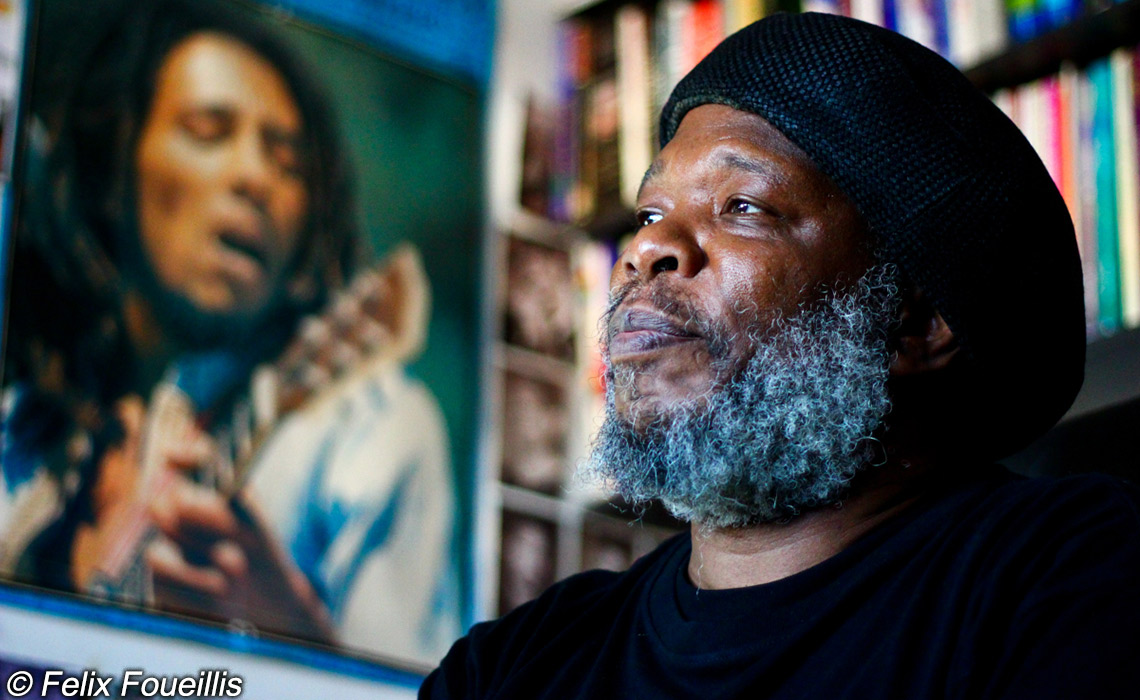
The thing I noticed about them was they looked clean. Like I said, Bob looked golden. Johnny Nash and Danny Sims looked like some different kind of black people! You could almost see through their skin. They were totally on a vegetarian tip. This was the first time I'd come into this thing of people being health conscious. Johnny Nash, Danny Sims, Bob Marley - they did not eat junk food. We used to go down to the health food shop in Shaftesbury Avenue.
They asked if I smoked weed and I said "Yeah" - trying to blag it! I'd had one encounter with some hash before - that was it. Bob said "Roll a spliff" but I couldn't even roll it properly. So Bob rolled up the spliff for me and then I heard them singing something to me. I thought "This is like heaven - the two of them singing together". Then, all I know is I took a puff of this weed and the next morning I woke up! I woke up and Bob Marley was laughing at me saying "Bwoy, you think you smoke weed?" Johnny said "Man went out like a light!" So that was my first experience with weed.
That morning I got recruited to be part of the team. Johnny was asking if I knew musicians and I said "You ever hear about the Cimarons? They are my bredren". So me and Bob went to look for them. Now it was Gichie that founded the group but Franklyn was always like the boss and they lived in Queens Park. When Franklyn saw Bob Marley it was like Christmas! Bob was like "Can they do a gig?" We were like "They know all Bob Marley songs back to front!" So they got the gig! Next thing was Johnny Nash’s group - and I knew Greyhound. Most of them were working, so it was Whitey and Errol we got from Greyhound to come and play with the band. We got Gordon Hunt, who now plays with Sade as musical director, to be the lead guitarist. Eddie Quansah, George Lee - they were some Ghanaian brethren. We got Johnny Nash’s group together and they were called Sons Of The Jungle.
I became part of the thing and Johnny used to whack me a few pounds here and there. It was like having a job that wasn't like a job! It was fun! So Johnny started asking me if I wrote and I said yes, so he said "Sing me some songs". I sang some and he said "We'll sign you up to the company". So I got signed to JAD Cayman just like that.
By now Johnny had moved from Ridgemount Gardens to a place called Cromarty Villas on Queensborough Terrace in Bayswater which became their office as well. There were loads of girls round Bayswater and Johnny Nash was a girls guy! Johnny Nash had girls coming from everywhere to see him - white girls, black girls, Swedish girls, all kinds of girls. Some of the prettiest women you've ever seen. Before that we had written Kinky Reggae 'round Ridgemount Gardens as well as a couple of other songs like Midnight Ravers that were going to come out on Catch A Fire. But Johnny Nash was doing Bob Marley songs - round that time Stir It Up had become a hit and they were working on Guava Jelly. So it was good times with me, Johnny and Bob moving round like a team - I was showing them London and taking them around. I didn't have a car but we used taxis, so no problem! Or we'd just jump on the train because they were like that. It wasn't some big thing for Johnny Nash in his ten gallon hat and Bob just walking around town.
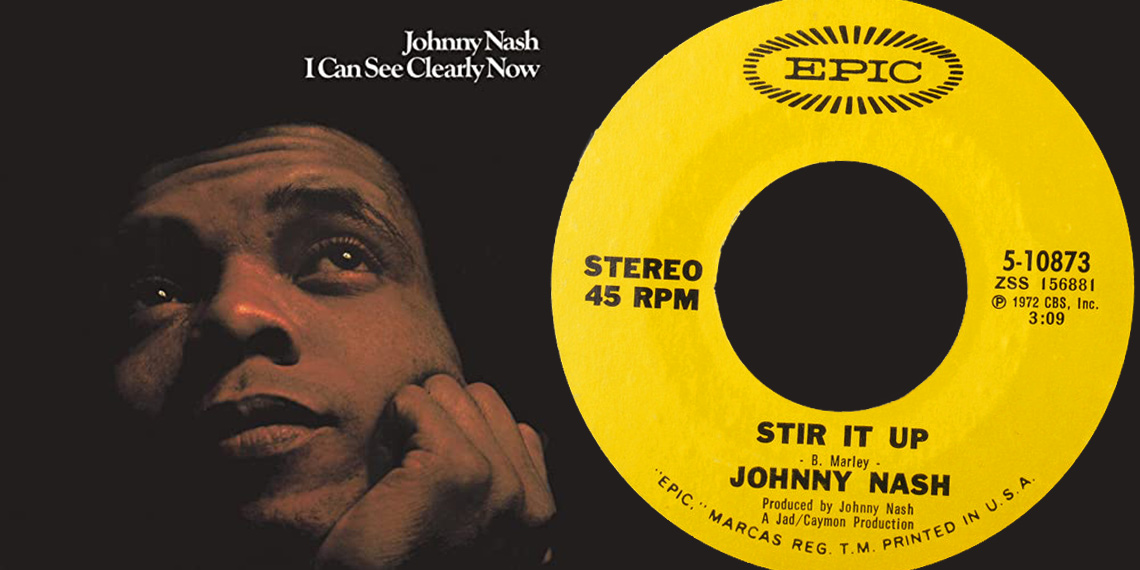
Around this time a guy called Brent Clarke, who was Johnny Nash's road manager, got the house in Neasden for the Wailers. I had talked Bob into going back to Jamaica to get Peter and Bunny and the Upsetters but he couldn't get all the Upsetters because Reggie was sick and Glen Adams said he was going to go and try his luck in America. So it was only Family Man and Carlie that came over. The band that we know as The Wailers effectively started in England. The rehearsals used to take place in Kingston in Surrey.
Bob had already done some gigs with the Cimarons - the Bristol Bamboo Club was the first place he played as a solo act. He upstaged Johnny Nash which was really strange when it happened. Everywhere he went it happened until I think Danny Sims got a bit irked about the whole thing and there was a problem brewing in the camp. I don't think it was really Johnny that was causing it but it was obvious that Johnny was being upstaged. It wasn't that Johnny wasn't a good singer but people had been waiting to hear Bob sing since forever. Bob Marley and the Wailing Wailers were a group that was coming from back in the ska days and they were a group that was consistent right from that time until right then. Bob was very popular with the girls. Bob was a very casual dresser, but when he went on stage he was like lightning. He was very charismatic and like the dervish. I don't know where Bob got that dancing style from but what he was doing looked totally and utterly different from everybody else and just captivated people. So eventually there was a parting of ways.
We worked at a studio called Whitfield Street studio near Goodge Street. A lot of that stuff isn't actually written - a lot of people don't know that Bob started at CBS because everything seems to start at Island Records. Bob started having hits long before Eric Clapton did I Shot The Sheriff - with due respect to Clapton and Chris Blackwell. Stir It Up had been a hit a long time before I Shot The Sheriff and so had Guava Jelly. He did a major amount of songs with Johnny Nash that were big sellers. So I think we need to set the record straight where that is concerned because a lot of the time we don't hear a lot about Johnny Nash. Had it not been for Johnny then Bob might not have come to England at the time he did.
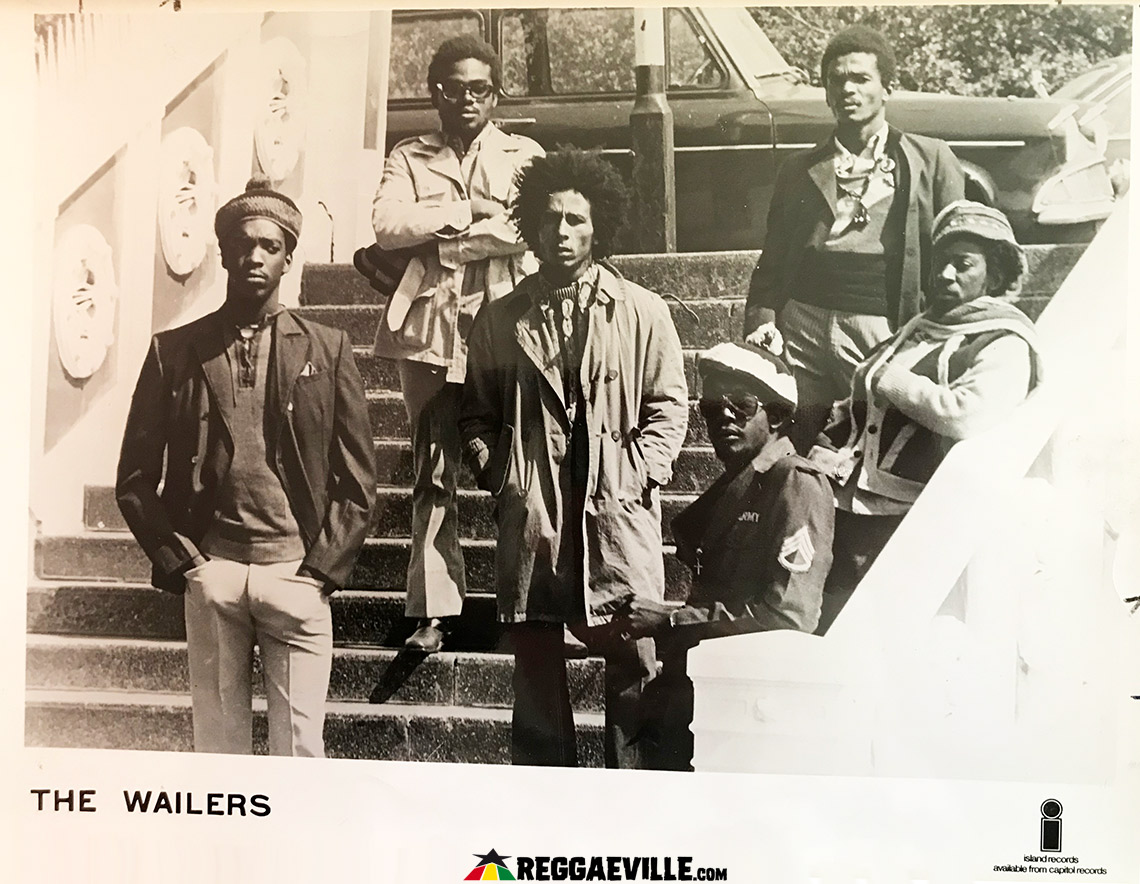
And for my career it was a big boost because I never did anything except the stuff I did for CBS. I had been signed to CBS through the same JAD Cayman set-up. It was Brent Clarke that engineered that whole thing. I introduced them to my band down in Neasden because I used to rehearse with Bunny McKenzie and Candy McKenzie. We had a band called Rebel. They sounded a bit like Cymande to some extent - a kind of reggae fusion with jazz coming in. I remember the Four Tops coming down to see us one day. We used to rehearse at Bunny and Candy’s house and the Four Tops came in and said they were really impressed with how we sounded. Kind of R&B jazzy - Bunny was a great jazz guitarist. Even Steve from Steel Pulse because Steve used to play in our band Rebel before he started playing in Steel Pulse.
How did the Wailers shift from CBS to Island and Chris Blackwell?
There was some upheaval in the camp. Within the Wailers there was disharmony. Maybe Bob was making a bit more money. It looked like Bob’s gig and it was because it was Bob’s money that probably brought everybody over here. Although it was also Johnny Nash who was engineering things because Johnny Nash was a big star. Bob had the hits and Johnny had money in the JAD Cayman thing so it was his money that set everything up - even if it might not have appeared to be that way in the beginning. It was only later on moving around Bob that I started to find out what was really happening. This was after Bunny and Peter had left the thing. That was when I started to get a better insight into how the business worked. Part of the thing at the time was getting the Rasta ideology mixed up with the business. There was a lot of confusion happening with the band - even round in Neasden. It was like “Why Bob a get more money when all of we is one group?” But how I see it now is - it was Bob’s gig.
So the shift came when there was a split between the Wailers and JAD Cayman. So for a little while things at the house in Neasden weren’t as rosy as they could have been!
We had some adventures at that house to be quite honest! There was a brother staying at the house called Chicory who was saying he was going to be sending for some weed from Jamaica because weed was too expensive. And there was a day when Bob, Family Man, Carlie and myself went off to Brixton to pick up some clothes and stuff. When we came back the Chinese people next door told us that police came and taken everybody away. Chicory had got the weed and the police had dressed up as postmen, brought the weed to the house, asked for Mr Chicory, he answered and that was it! Took them away to Harlesden Police Station and locked them up! Bob had to come and bail everybody out!
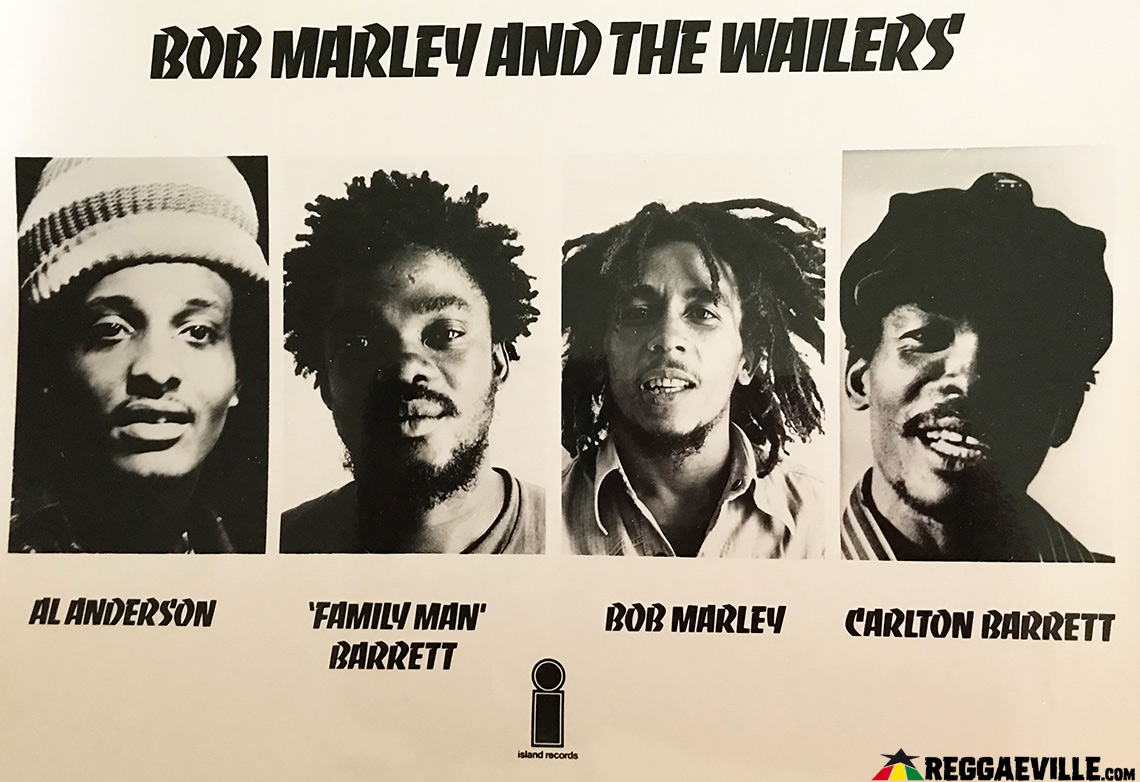
Anyway, it was Brent Clarke who took Bob’s music to Chris Blackwell - contrary to common opinion. They needed some money to finish the album, Chris heard it and I think he gave them about £400 or something like that. I know the album had already been started at CBS and that was what eventually came out as Catch A Fire.
Tell me about your own involvement in Catch A Fire...
I was helping Bob to write some of the stuff. Bob thought that I spoke good English. At one point I said to Bob at the house in Neasden that if his songs sounded a bit more English people might take to them more. So Bob said "You can become my co-writer then". My thing with Bob was that when he used to sing his songs in Jamaican dialect I used to change up the words. It wasn't a big job really. At least I didn't think it was. Then there were some songs that I wrote with Bob like So Jah Say on the Natty Dread album - you can hear me singing on that - although I never got any credits for certain things. I was telling Rohan Marley the other day that it was just fun. I didn't know that you should get credits on a record when you did something. I wasn't necessarily looking for credits - it was just fun being around Bob and doing stuff with Bob Marley. Because like I would say to people - Bob was my hero. I never looked at it like it was such a big job.
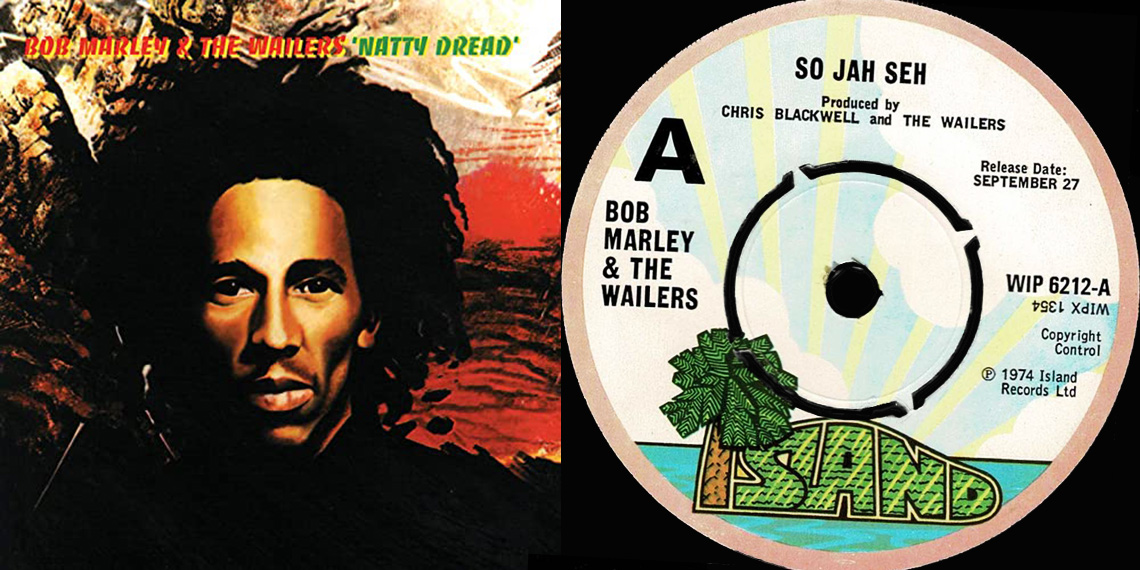
Which Bob songs did you sing on and get involved in?
I got recruited to do things on Catch A Fire but it was really on the Natty Dread album that I did quite a bit. And funnily enough, on the Live album! I shouldn’t say that, but on the live album I was involved in singing the harmonies. If the harmonies aren’t right you go in the studio and bring some girls in. It wasn’t always the I Threes on it. I hired Candy McKenzie to do some back up vocals as some of the vocals were too low. So some of the voices on the live album are my voice as well because I had to teach the girls how the harmonies went.
So most of it was me and Bob working on ideas. The girls that came with Kevin [MacDonald] for the film brought a tape back from America that I had given them to hold on to. I heard something like Feeling Irie? They played it to me and I said “I know what we were doing. It was me and Bob working on some minor and 9th chords”. We were always trying stuff out.
And they brought back another tape for me that Roger Steffens had sent that was one of my tapes. It’s actually sat there on one of my speaker boxes. So No Woman No Cry I was involved in helping Bob to write. They were doing High Seas And Low Seas [High Tide Or Low Tide] and No Woman No Cry came out of High Seas And Low Seas to be honest. Ziggy did that song and that was one of the first songs I rehearsed with Ziggy along with Children Playing In The Street. Because Rita asked me to come and help coach Ziggy and them when I was over in Jamaica. Some of the stuff I’ve done with Bob I don’t even remember. Some of these guys write it in a book and it’s only when people talk about it that I remember.
Vivien Goldman was writing her book. Vivian couldn't find me. She left me in Ladbroke Grove and she went to America. Somebody said “Delroy is in Harlesden” so what does Vivien do? She came to Pops’ place down the road and she phoned me. I said “Vivien, you sound like you're right here”. She said “I’m just up the road! I'm getting my book together and you've got to be in my book. I've only got a couple of hours” and she was here at 4pm and she leaves after midnight! Because she's talking to me about all this stuff that's happening during the time leading up to and after they shot Bob Marley. And I've given her a different spin on it.
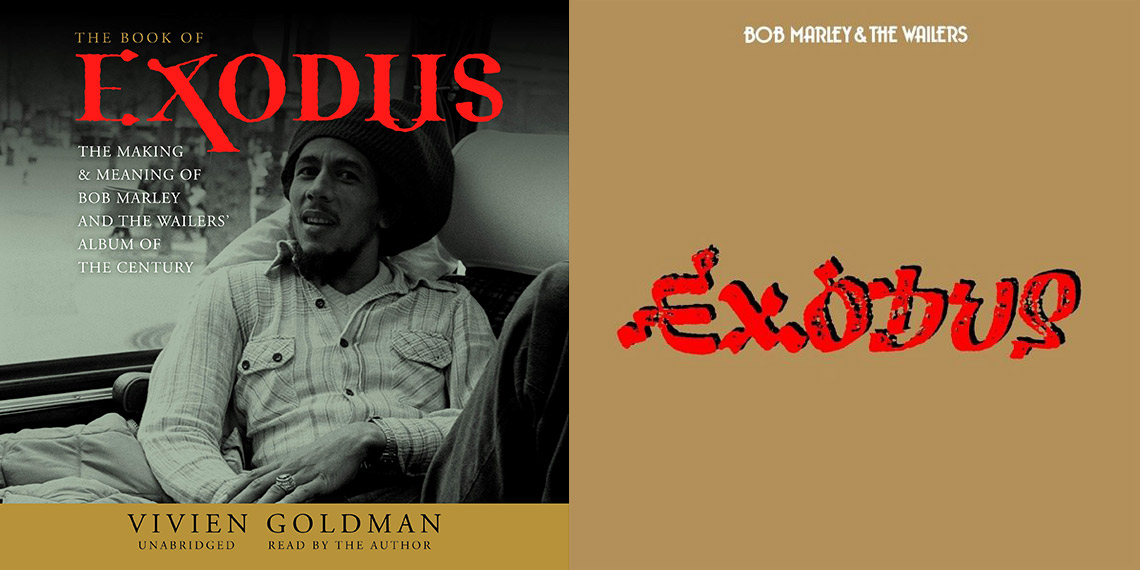
It was a very funny thing that happened when Bob got shot. Because Culture said to me that they were in the studio doing a tune called Jah Jah See Them A Come. And if you listen to what Bob said, Bob said that he saw the guy, he had a dream the night before, you know? When the guys came to shoot him, he said the night before he had a vision that he saw the thing. He said it was like the dream became alive. Like he was in the dream. He said “You blood claat” and all he heard was (footsteps) and the thing hit him.
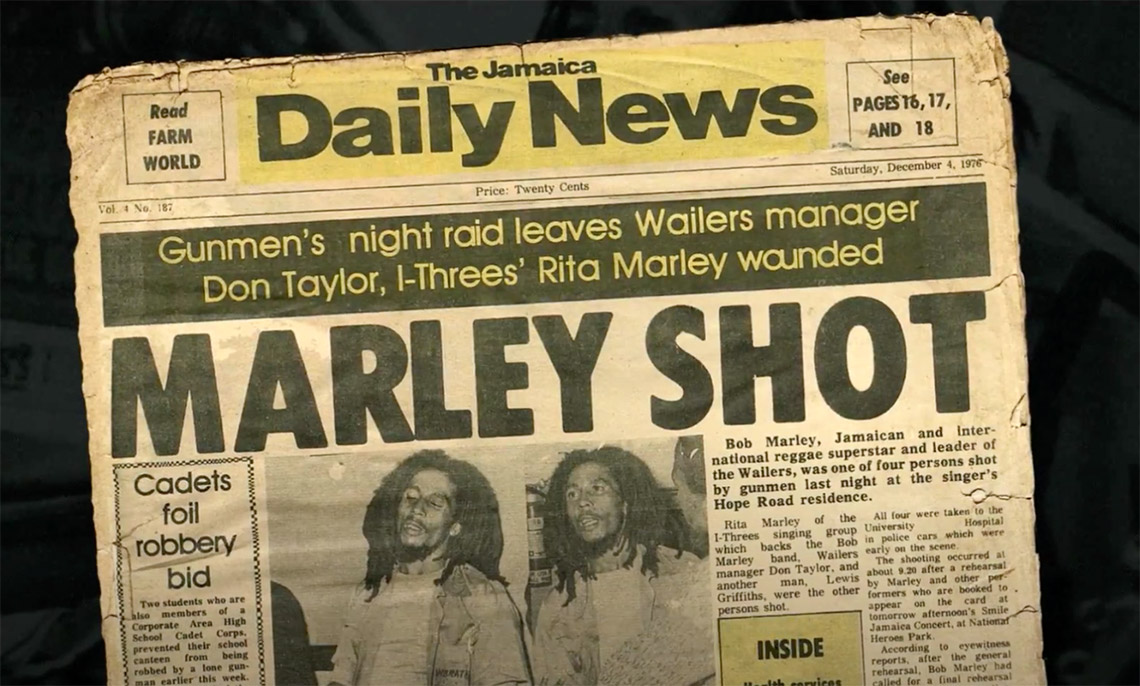
Then a shot came and it hit Family Man’s stool and broke the stool you know? So if Family Man had been sitting down he could have been killed. But the thing came and clipped the stool, mashed up the stool, Family Man fell to the ground. Don Taylor must have seen something, he came and the shot that was supposed to hit Bob Marley caught him in his hip. Then some weird karmic thing happened where everybody got down and the shots rang out and then after somebody phoned the police and the rest of it is history. But he said he dreamt what was going to happen the night before.
How did Bob and the Wailers being in Neasden affect the local community?
That was the place where they lived for the longest. So them being there impacted on the community in Neasden and young people like Brinsley Forde for example, who I introduced to the Wailers. Paul Dawkins, George Dawkins, Bunny McKenzie all those young people.
In Brent they did a lot. We used to take them to the youth clubs at Bet Berl Hall where we used to do stuff, at Nomads and places like that. But there are a lot of interesting community things that Bob Marley did there. Like Ital food. Rasta people were dealing with Ital food but it didn't become popular until we and Bob moved to Neasden Circle. People used to come in and they noticed that we were eating food without salt and vegetarian stuff. Those things became a talking point because a lot of people started thinking “This thing’s alright”. Paul Dawkins was one of those young people who was around at the time who still comments on stuff like that.
We always used to be in Neasden Recreation Ground most days. Doing jogging because Bob and the Wailers were always into healthcare. Peter wasn't kicking footballs because he was more into martial arts. But Bunny and Bob were the footballers. Family Man wasn't really a footballer but we could go jogging.
Because Bob was really into football and he was big on health as well. Despite people thinking he used to smoke a pound of weed a week - which is rubbish, never happened. Who could smoke a pound of weed a week? (laughs) That's just some sensationalist stuff that people put out there.
Let’s talk about Aswad - or rather what became Aswad - and yourself...
I'll start with Brinsley because I remember back in the day maybe I was somebody that those kids, some of those brothers looked up to. Because I was moving with Bob, I graduated from things around here to be part of the Chelsea set. I started to move around with a lot of pop acts up in Chelsea. Some of the other Island acts would pop into the house where we were staying in 436 Kings Road and stay there overnight while I was there. I met some people from Traffic. I met Steve Winwood but there was a brethren in Traffic who used to play the percussion called Rebop Kwaku Baah from Ghana. I used to be moving around and then Esther Anderson had given me her flat to sort of look after. Esther was Bob's girlfriend who took some of those pictures of him with the big spliff. I was coming from Chelsea, going up to my place up in Kingsbury.
And I buck up Brinsley who had heard that I was making some records. He wanted to know how to make a demo. I used to help him out anyway, showing him chords on the guitar and stuff. He said he wanted to put a group together and I showed him how to get some demos and things. George Oban used to live in Neasden and he was the original Aswad bass player. He came to the Metro club where I used to hang out and said they wanted to put a band together. That was the beginning of Aswad for me. I had Drummie because he was like my little brethren in Ladbroke Grove.
I was moving around Ladbroke Grove and it was in the Metro club where I started the whole band thing. I started doing some stuff and word got around that my band was a really good band because I was doing some pretty big gigs with some of the Jamaican acts. I was opening up for the Chosen Few and people like that. At the time getting a gig at Acton Town Hall was quite a big gig for a youth like me!
But Aswad came about because I had an Ethiopian girlfriend, Turru. George did a funny nasty one on me with Turru and he started moving with her but it was Turru actually gave the band the name. It meant “black” from an Amharic perspective. So you could actually say a joke that the name came from George meeting my ex-girlfriend! And one time I was playing around the place, rehearsing again, and Brinsley came and asked me because we had a good drummer, if I would mind my drummer playing because they had a gig? They talked to Drummie and I said “Yeah man, why not?”
Who else was in your band at that time?
Courtney Hemmings who wrote the song Move Back To Africa which was their [Aswad’s] first big hit. There was a brother called Keith Wallace, a bad keyboardist. He was really above-average. We had two keyboard players - Courtney who would keep the shuffle and Keith was like a jazz player. The band that I had was initially some of the people in Rebel with Drummie and we had some horn players. Jimmy Lindsay also sang and came and did stuff with us. And that song Easy that he did, most of Aswad and some of the other man played on it. So that band was a tough band we called it Ujama - an African name - and then we changed it to I Sus.
So Aswad asked Drummie to join them permanently?
Yeah but he was playing with them when he was also meant to be playing with us. He was playing in I Sus, he was still playing on Rasta and all our gigs. So most people used to think that I was in Aswad! (laughs) A lot of people said I was in Aswad. Courtney would say “No, but you were in Aswad” because I was the one that did all the harmonies.
Because truth be known and it's not like trying to belittle them in any way but Brinsley and George were always fighting over something or other. It was like the original pop band Oasis thing, brothers always fighting. One night they did it in front of Chris Blackwell in Basing Street studio. Chris Blackwell got really upset and he asked if I could help them to finish off the album in the next two nights. Because they had a bit of time in the studio but there was in-fighting going on during the first album. So I had to say to them “Look Chris is saying if you can't finish the album in a couple of days mate he's going to pull the plug. And you won't have a deal anymore”. So he asked them if I could help them finish the album and if we finished it off they still had a deal.
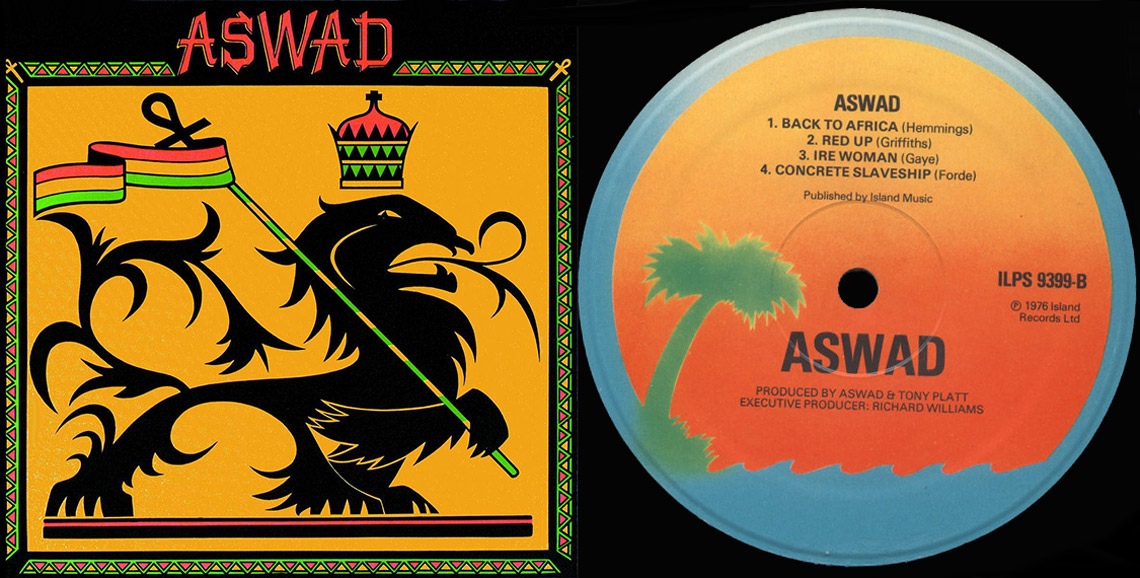
So I said to them “OK this is what we're going to have to do” and we had to cut some of the stuff where they were trying to be too progressive. Some of the songs had too many chords. So what I did was simplify everything and took some of the tunes that I think were the best tunes. I said “OK they can't sing the harmonies, I'll double track the harmonies”. So tunes like Back To Africa I did all the harmonies. That was me in all the harmonies on Irie Woman. I showed them how to play the bass and all kinds of stuff. Simplify the guitars and all of that.
There's a well-known Youtube video of you and members of Aswad performing at the 1976 Notting Hill Carnival. For the benefit of younger people today who see the carnival as a big party, what was Notting Hill Carnival like and how did you end up performing there?
I've got a long association with the carnival because myself and Rico we used to go out and raise a band. Because they didn't have any money at the beginning. People like myself and Rico used to go out and play at different venues to fundraise for the carnival. Leslie Palmer is the person who really got the carnival to where it is now. Leslie Palmer was an A&R man at Island Records later on. I didn't have to do that gig there. Where that [video] was taken was outside Metro. That was where I used to rehearse back in the day. My brethren gave them some money to help the club and we did the recording in there. Funnily enough the same day we'd actually done a recording at the Marquee club. Some people ripped off those tapes actually. You know a guy called Jeremy Marre?
Who did that Roots Rock Reggae documentary...
Yeah. He shot a lot of stuff. I know that Virgin has got a really bad live album with me as well. I’m not just saying it, it was really good. Because we used to rehearse! I was kind of surprised when I heard that tape back of Notting Hill because the sound quality was quite good for recording outside. And that was with the band and or one evolution of it. People are saying “That was you singing with Aswad, wasn't it?” But no.
I saw people writing in the comments on YouTube that it was Aswad.
It was because Tony was playing keyboards! Like I said, I taught him to play reggae bass. He was not in Aswad at the time. The only people that had played with Aswad were Courtney who used to do sessions with them, Bunny McKenzie, and Drummie played drums with them as well. And Tony, who eventually was one-half of Aswad. They were my band. But it wasn't Aswad per se. That was the famous carnival where the riots happened in 1976.
Were you caught up in any of the riots?
Yes. Funnily enough that recording was done in the morning. In the afternoon I saw Tabby and the Diamonds because they and I were quite tight because they were signed to Virgin as well. They came from where they were staying at Earls Court and said “Delroy Washington you're going carnival?” I was saying I was tired after doing all that stuff at the Marquee and then we did that recording after that. But then I was thinking “I'm right in the middle of the carnival anyway” and they said “No man, come round” and there were some girls with them.
They were walking in front of me with these girls and we were on Tavistock Road where Metro is and I just got a funny feeling about something. Because I'm like that. Something didn't feel right. But as we were approaching the Metro all I saw was a police bus flying down the road on its own! And I saw some police running as well. So I thought “That's funny”. Then as we reached the Metro club all hell broke loose. I saw all kinds of things flying and everybody was rushing into the club. I heard some girls shouting “Delroy! Delroy! Come in! Come in!”
I just saw things flying past me and it was like a dream. I was walking very slowly and as I walked nothing hit me. Some people who were running got hit. I just walked without getting hit into the club. I closed the door behind me and it was like things got back to normal. And the next thing I know someone was on television about this thing happening at carnival. All hell had broken loose, riots and all kinds of things blazing. That was a mad carnival.
The first blue plaque you helped put up in Brent was for the house owned by Dennis Brown’s brother Leroy, where Dennis lived. Dennis was coming over during the 70s and started living here. What kind of impact did Dennis Brown have on people in London?
Dennis Brown was another youth who was very ordinary. Most people probably think Dennis Brown was some high-flying type. When you heard Dennis Brown it was kind of mystical - for me anyway because I've got a vivid imagination. Dennis Brown's music was coming from another place. What I think attracted a lot of young people over here to Dennis was that they just could come to Dennis Brown's house at Kemp Road up in Kensal Rise where Dennis and I might be working on something. People just came and sat down and everyone was welcome. So everybody used to bring food, we would cook and Dennis Brown would sit down and eat with everyone. And then we would all go out together to the blues. Everybody liked Dennis Brown because Dennis Brown was like one of them. He was just one of us.
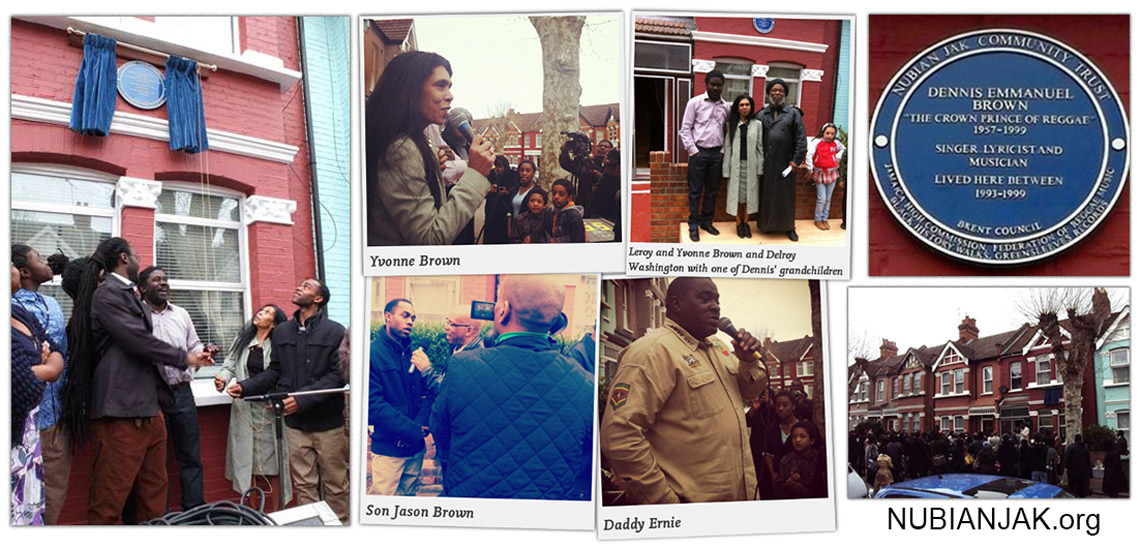
Trevor Hutton who used to manage Don Campbell and is now doing a really interesting football project in Wembley AFC was saying what struck him was how Dennis always encouraged people. If he could help you to do it he would help you to do it. Trevor said that Dennis befriended him rather than him trying to be friends with Dennis. He encouraged him to do what he was doing. When he went to Jamaica Dennis was always helpful to him. It wasn't like “I'm the big star and you're nobody”. This was what was special about Dennis Brown. Dennis would be on the buses pretty much like Bob Marley. He would be walking down Harlesden High Street or Church Road or we could go to the blues down at Kensal Road. Just be like everyone else. No ego.
For me as an up-and-coming singer at the time, again Dennis befriended me. Bob and Dennis were people that shaped my views. Because people like Bob and Dennis were accessible. We could say that Peter and Bunny were like that but they were slightly different. Because you can get radical to the point where you can start making people think “Who does he think he is?” (laughs) You would not say that about Dennis Brown because Dennis was like “Boy, Skip, I want to do this”. He was off the stage and he was back to normal. This created a certain type of artist who didn't really believe that we had to go beyond a certain way to be accepted. You could just be ordinary and people would like you because you're down to earth and normal.
Dennis Brown maybe had this more than Bob in one respect - but Bob's house was always open. Bob was a bit more radical obviously but Dennis was just “purely roots” as man would say. Dennis was like a real root, down to earth person, sitting down and if somebody had an idea for a song he would sit down and work with them and in 2 seconds he would come up with the song. He was encouraging.
That's why I want to help the Brown family to keep Dennis Brown's memory alive because he was a genuinely good person. And he was exploited because of this as well. I could go into some of the things that happened because people need to know about them. I'm not afraid to talk about them because Dennis was someone who was just an open kid and people just abused his goodness.
I'm a spiritual person and I don't believe that Dennis' spirit is dead but when I heard [he died] I just locked myself away for days. I couldn't believe it happened to him because Dennis was such a great person. And when he died we were about to do something. He and I were going to start a project when he came back from Brazil. But unfortunately it didn't happen.
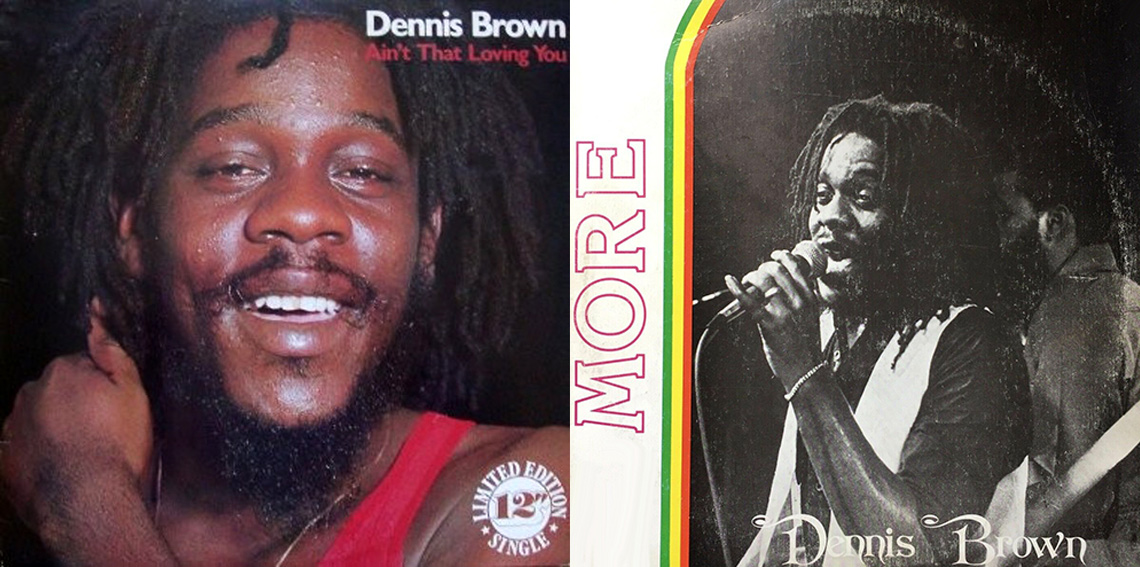
I could talk all kinds of things about him. Like I said he was a genius in that he could spin a song off the top of his head. He’d just go in there, listen to a rhythm track, he’d just come up and jam on it and make something out of it. I'm saying that Dennis Brown was like Pablo Picasso in that respect. Because Dennis Brown music is not necessarily normal. It’s artistic in a kind of… oblique way. There were songs that Dennis and I could have crafted but the stuff that he did was the stuff that was really spontaneous. And no one did that better than he did. And that is the kind of trend that Dennis Brown started in reggae. That he could just go and jam on a rhythm and make it happen.
Read here Part III of this interview where Delroy talks about getting signed to Virgin Records.
Interview Part I is available here! Part II here.
Delroy’s family are currently trying raise funds for his funeral costs - you can donate @ GOFUNDME.com
PHOTO CREDITS: Felix Foueillis - United Reggae, Reggaeville Archive (Wailers Press Photos) and Nubianjak.org (Dennis Brown Blue Plaque 2012)




